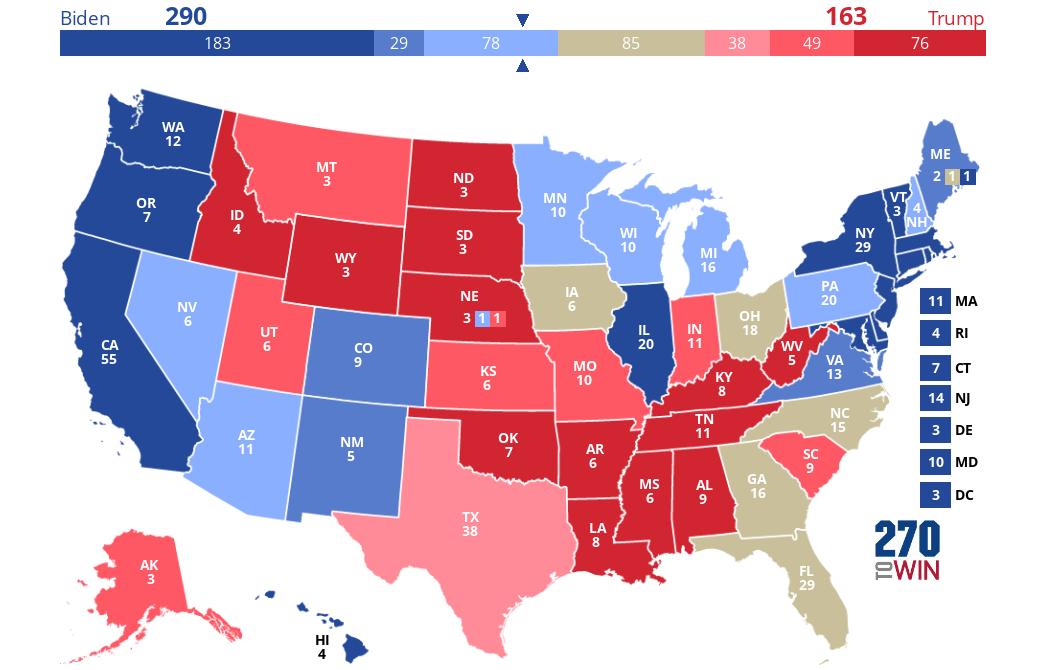What is the Electoral College anyway?
And why is it important?
October 16, 2020

In the 2016 presidential election, Hillary Clinton won the popular vote, surpassing Donald Trump’s numbers by about three million. However, we all know who was sworn in on Inauguration Day. This was because of the Electoral College. The results of this election raised the question for many voters: What is the Electoral College anyway?
In the 1780s, members of the Constitutional Convention debated how the young United States would elect its leader. Some wanted Congress to choose the president, while other were in favor of letting the popular vote decide.
The Electoral College was their compromise. They decided electors would be awarded based on population, with small states are guaranteed at least three, regardless of size.
To win an election, a candidate must have 270 of the 538 electoral votes. Both parties choose their electors, who can be practically anyone, except for members of Congress. They are typically selected at their party’s state convention.
However, neither party is guaranteed votes for their candidate. In fact, 48 states are winner-take-all, including Oklahoma. This November, our seven electors are supposed to cast their ballot for the person who wins the popular vote.
Those who choose to disregard this rule are known as faithless electors. In 2016, five Democrats and two Republicans voted against their respective states. In Oklahoma, faithless electors can face a misdemeanor charge and be fined $1,000.
While some people may believe the Electoral College is outdated or unfair, I think it is still important to democracy. If not for the votes awarded to states with small populations, big states would have an advantage over small states, which is what the founding fathers were trying to prevent.
It has been argued that the Electoral College favors conservatives, but in 2008 and 2012, President Obama carried both the popular and electoral vote. The Electoral College serves as an equalizer of sorts, giving all states a fair opportunity to choose the president of the United States.

